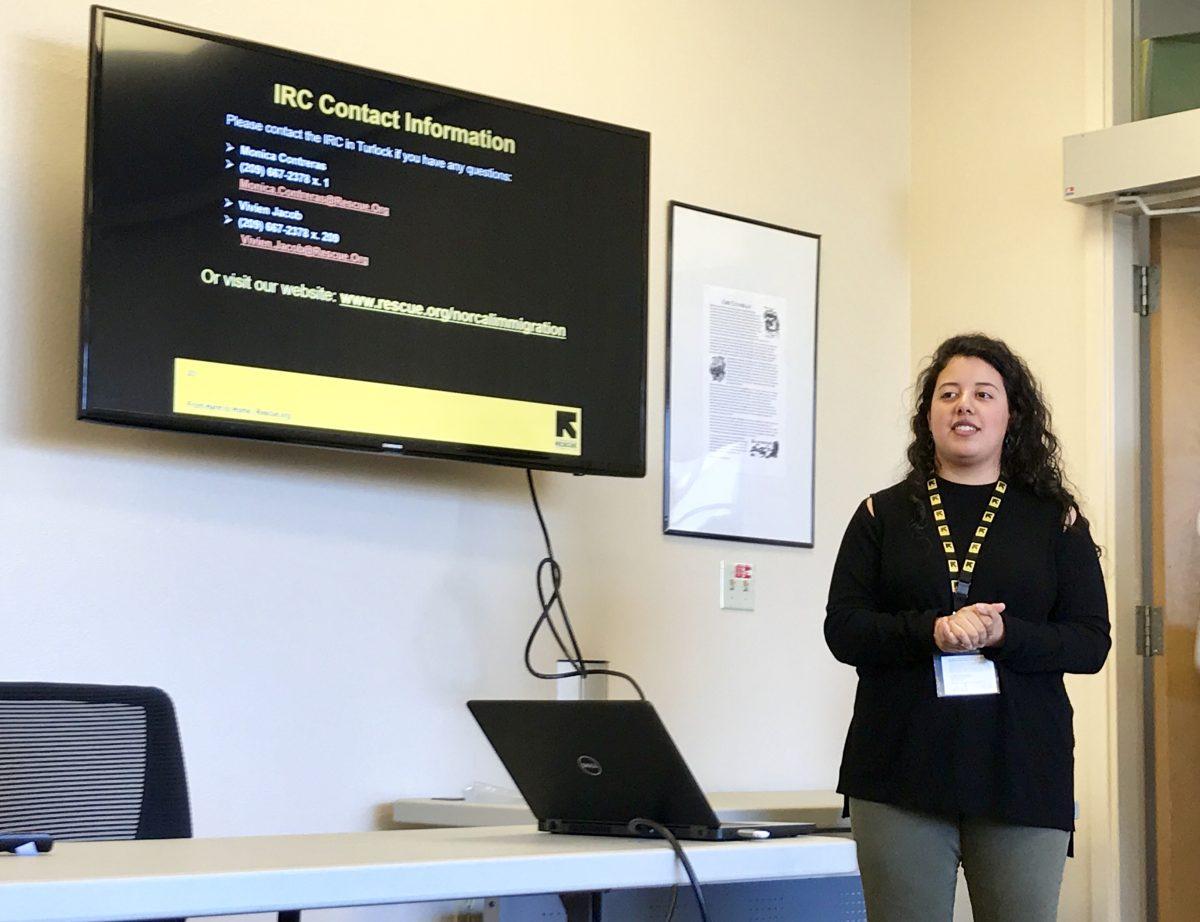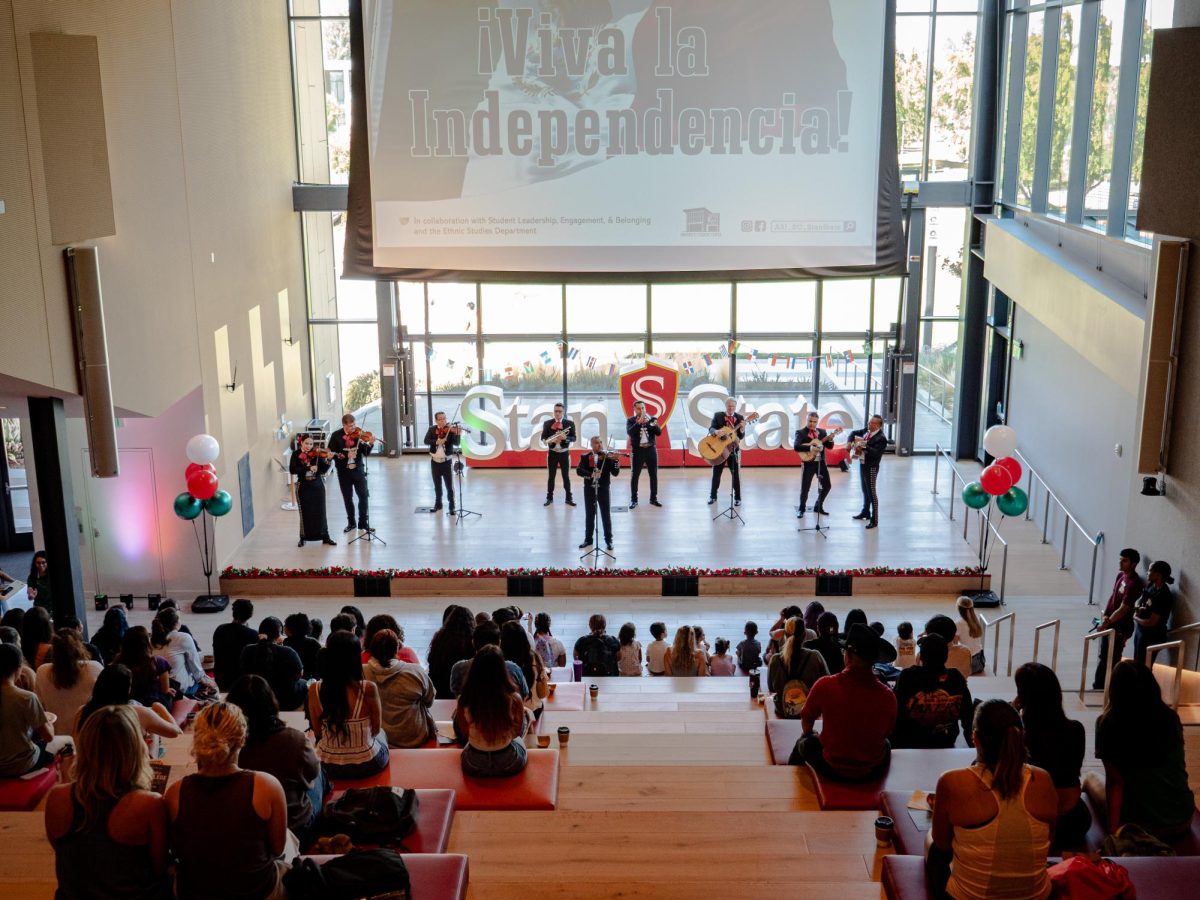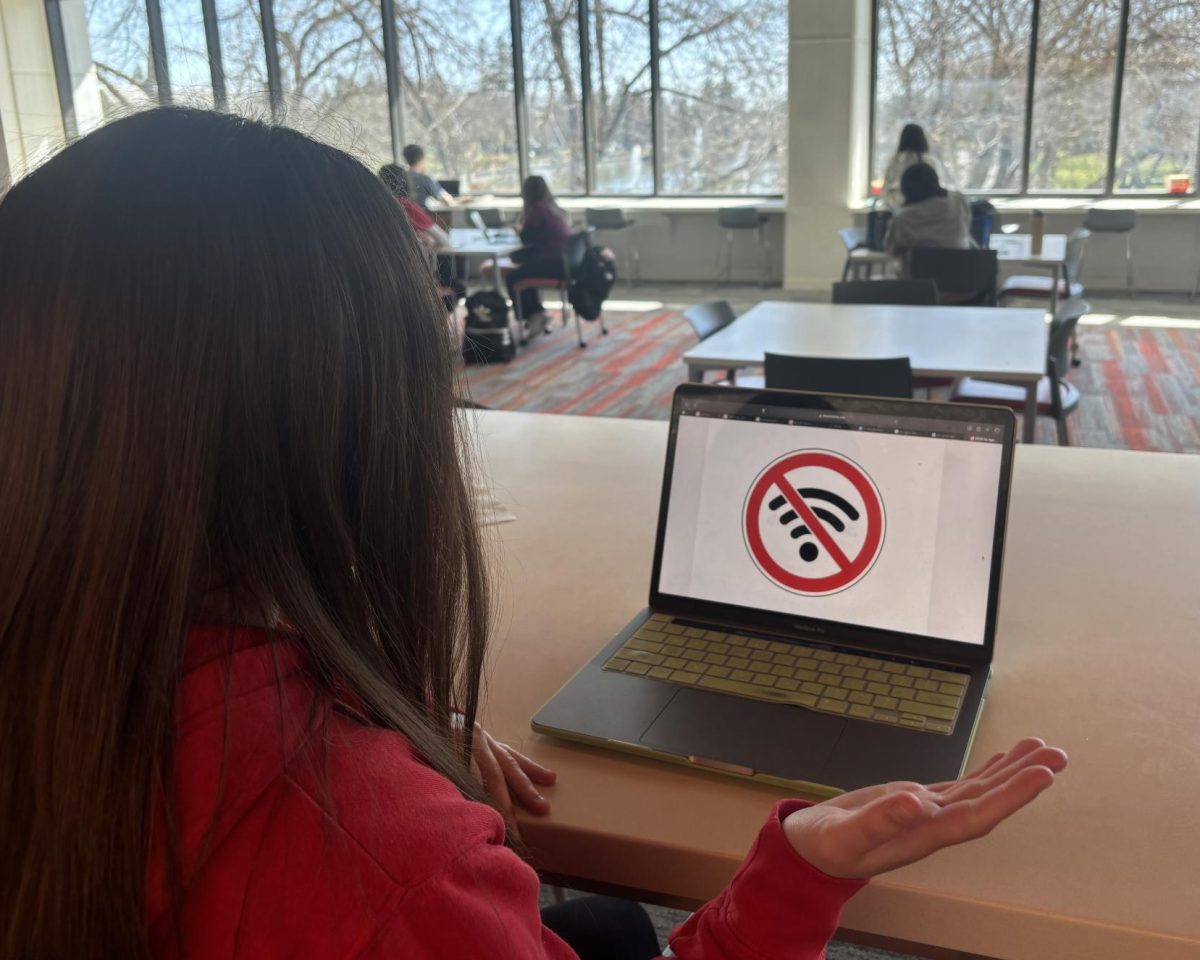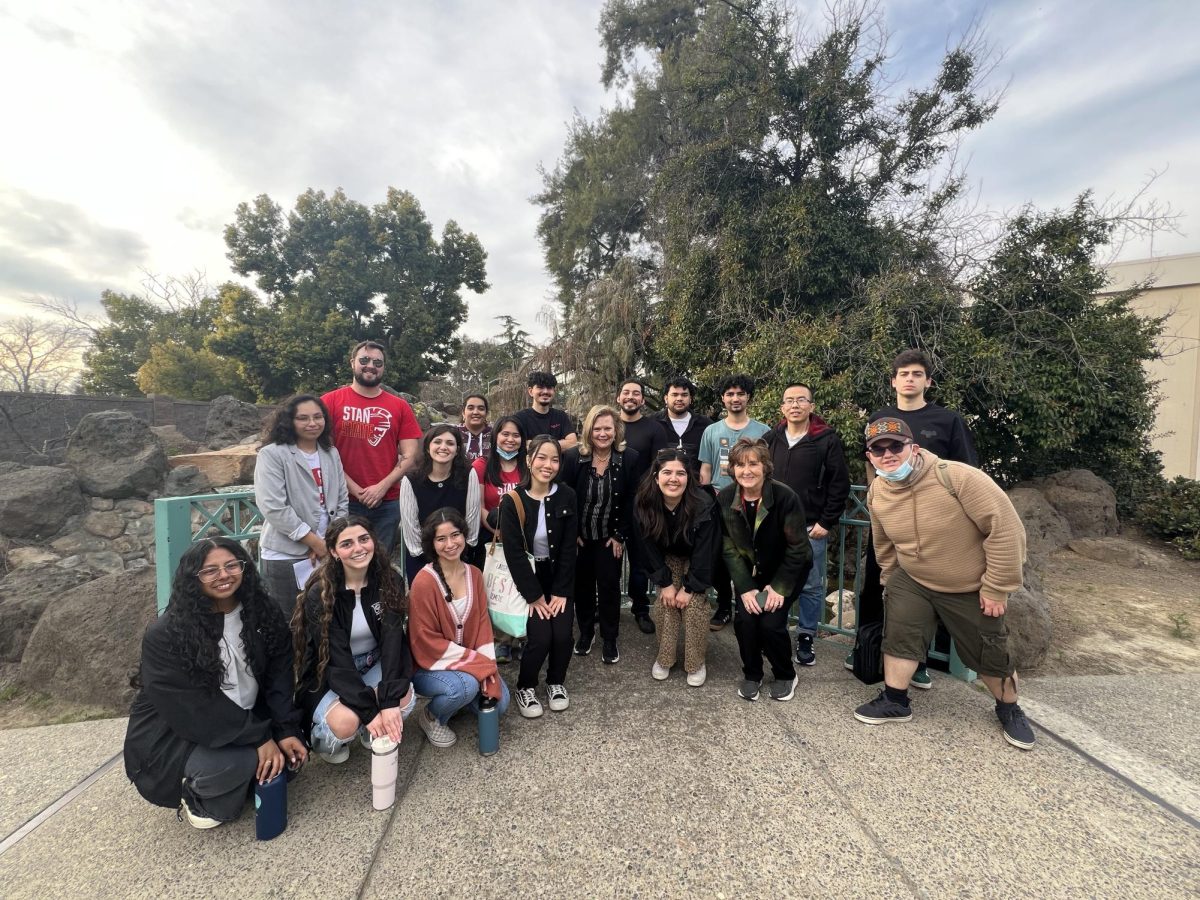The fifth day of the “Students: Know Your Rights!” Conference covered Immigration Rights and was led by Yasmeen El-Farra, a speaker from the International Rescue Committee (IRC) in Turlock.
El-Farra spoke about the different resources given at the center located in Turlock.
She gave guidelines for immigrants if they are detained and gave advice on getting a green card and starting the naturalization process in the United States.
IRC in Turlock
The IRC center in Turlock provides opportunities for refugees, asylees and other immigrants who come to thrive in America.
“We help them find homes, jobs, learn English, and help them become integrated into the community of Turlock,” El-Farra said.
Within the first three months, the IRC in Turlock also helped refugees find their first jobs in the United States.
El-Farra continued on to share stories of incoming refugees who are fleeing the war or religious persecution in Iraq or Iran.
The newly arrived refugees receive:
- A furnished home
- Help with rent
- Health care
- Nutritious, affordable food
- English language classes
- Help building job, computer and financial literacy skills
- Education for their children
- Social services and community support
- Legal services towards residency and citizenship
“Refugees are greeted and welcomed at the airport by IRC case workers and volunteers to ensure their transition is as comfortable as possible,” El-Farra said.
What To Do When Detained
Immigrants who are arrested or detained by Immigration have certain rights. Depending where immigrants are detained, their rights may change.
“If they are arrested or detained at the border they have fewer rights compared to if they are arrested by Immigration at work or at home,” said El-Farra.
Regardless of the situation, El-Farra said, it is important that you keep calm, and remember the following things:
- You have the right to remain silent. You should ask to speak to a lawyer.
- Do not sign anything without first talking to a lawyer. You may be signing away your right to see a lawyer or a judge.
- Write down the name and telephone number of the deportation officer assigned to your case.
- Do not take “voluntary departure” (that is, do not agree to leave the United States) without first talking to a lawyer. Signing a voluntary departure agreement means that you won’t get a hearing, you will have to leave the U.S. and you may never be allowed to enter the U.S. again or get legal immigration status.
- In most cases, Immigration must decide within 48 hours whether to put you into immigration proceedings (in front of a judge), and whether to keep you in custody or to release you on bond. After 72 hours, Immigration must give you a Notice to Appear (NTA). This is the notice that provides you with the information about your hearing before an immigration judge.
The department of IRC also provides assistance for Green Cards, Citizenship/Naturalization, travel documents, employment authorization, visa applications and Deferred Action for Childhood Arrivals (DACA).
For more information on citizenship and immigration services in Northern California, click here.
Moving Forward
Dr. Andrew Conteh, Professor of Political Science who specializes in international relations and law at Stan State, said, “It is very important to be involved with what is going on. Pay really close attention to events, flucts and things that are changing nationally.”
Last month Austria, the United States and Hungary backed out of the United Nations migration pact.
“The Global Compact for Safe, Orderly and Regular Migration will be formally approved on December 11-12 in Marrakech, Morocco,” said Conteh. “Several states have already said they won’t sign the UN Global Migration Pact.”
To find out more about services available at the Turlock IRC, or for information on volunteering, call (209) 667-2378 or visit International Rescue Committee.







